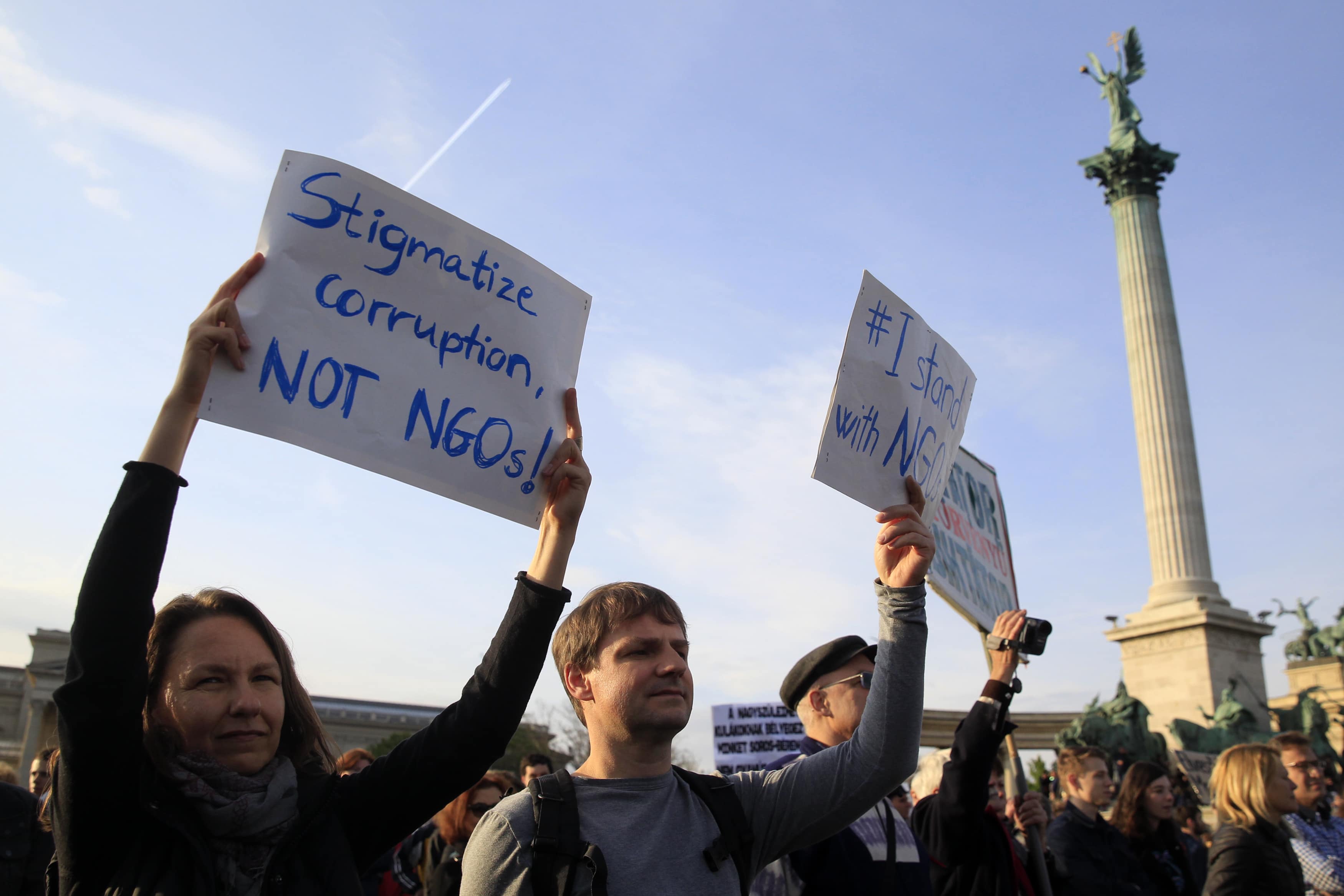IFEX calls for the full and immediate withdrawal of Hungary’s proposed foreign funding bill, due to the threat it poses to local members and other independent civil society groups.
IFEX, the global network of 108 organisations promoting and defending freedom of expression worldwide, wishes to register our strong opposition to the Hungarian Government’s proposed foreign funding bill, which poses a serious threat to the functioning of independent civil society groups in the country, including IFEX members the Hungarian Civil Liberties Union (HCLU) and the Center for Independent Journalism – Hungary. The threat is such that we believe the only way to ensure that these organisations are able to continue to operate in accordance with their internationally protected rights to freedom of expression and association is through its full and immediate withdrawal.
The bill, officially titled “Transparency of Organizations Financed from Abroad” is ostensibly justified by the need to counter money laundering and terrorist financing, as well as to protect the political and economic institutions of the country from “undue influences”. However, this legislation must be viewed through the context of the ongoing efforts to discredit critical NGOs.
Recently, representatives of the government of Prime Minister Viktor Orban have made a number of public statements that clearly demonstrate their disdain for organisations that challenge the ‘illiberal state’ they have championed. The Prime Minister himself in his recent state of the nation speech said “…in 2017 we will also need to take up the struggle against international organizations’ increasingly strong activists. […] It is a problem that foreign funding is being secretly used to influence Hungarian politics. […] We are [talking about] paid activists from international organizations and their branch offices in Hungary.”
The use of such rhetoric has unfortunately become a common tool in Central and Eastern Europe to disparage a range of groups that work on issues related to the promotion of democracy and human rights. For example, both Russian and Macedonian officials have used similar language to attack civil society and have subsequently introduced legislation and punitive financial inspections aimed at crippling their activities.
The proposed bill is the legal embodiment of this sentiment of hostility in Hungary. Its scope covers any organisation or association that receives at least 7.2 million HUF annually, while excluding groups such as religious and sports associations. The definition of “foreign funding” includes any financial support originating directly or indirectly from abroad, inclusive of private donors. EU funding will only be exempt if the government has direct management control.
The bill would require these groups to re-register with the courts as an organisation receiving foreign funding, to provide annual reports on their funding situation and to publicly label themselves an “organization receiving foreign funding” directly on their website and of all of their publications. Non-compliance with these requirements would result in a simplified cancellation procedure initiated by the public prosecutor, which in practical terms would mean the closure of the organisation.
These provisions are problematic for a number of reasons. Most obviously, they are both arbitrary and discriminatory in nature. Despite the justification of the need to combat illicit activity and protect the national interest, no explanation is given as to why associations that are non-political, yet in theory, equally susceptible to ‘negative’ influences, are excluded from the bill’s purview. This strongly suggests a conscious effort to target NGOs based on their opinions, rather than any legitimate suspicion of wrongdoing. The bill appears to seek to discredit these opinions by forcing them to include labels intended to delegitimize the target organisations on their website and reports.
The registration and reporting requirements also create a significant additional administrative burden for its targets that will hamper their ability to operate effectively. The punitive measures for non-compliance are also disproportionate penalties to the offence. Finally, the bill threatens the privacy rights of donors, as it forces NGOs to publicly disclose the name, country and city of each foreign donor, regardless of their status as private individuals.
Given these issues with the foreign funding bill, we call for it to be withdrawn immediately. In its current form, the bill is incompatible with internationally recognized free expression standards and with the government’s positive responsibility to create an enabling environment for the defense of human rights.
Moreover, we call on the Hungarian government to cease its rhetorical and administrative attacks against our members, and all civil society organisations acting lawfully and within their rights to promote democratic values in the country.
The use of such rhetoric has unfortunately become a common tool in Central and Eastern Europe to disparage a range of groups that work on issues related to the promotion of democracy and human rights.
This strongly suggests a conscious effort to target NGOs based on their opinions, rather than any legitimate suspicion of wrongdoing.

